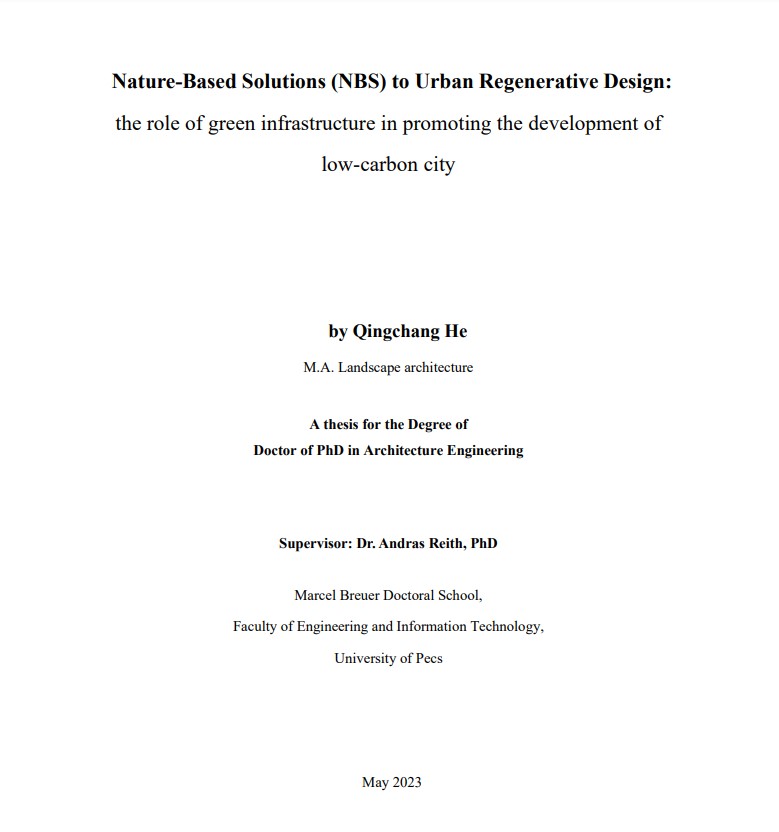Nature-Based Solutions (NBS) to Urban Regenerative Design - The role of green infrastructure in promoting the development of low-carbon city
Abstract
As a further evolution of the sustainable concept, restorative and regenerative urban design aims to remediate the harms that previous practices have caused on the urban environment. Nature-Based Solutions is regarded as a significant measure of timulating the development of restorative and regenerative urban design. In the context of climate change, reducing building
energy demand has become a global consensus as it takes up 8% of direct carbon emissions. As an important component of Nature-Based Solutions, green infrastructure has been confirmed to play a positive role in eco-environmental management. However, it is unclear whether it can provide a reliable incremental path for the development of low-carbon cities. This Ph.D.
research focuses on exploring the potential of Nature-Based Solutions in promoting urban regenerative design. Specifically, it aims to demonstrate, through qualitative and quantitative comparation analysis, whether green infrastructure can effectively contribute to the reduction of building carbon emissions. The research employed a comprehensive approach to achieving
this purpose, including (1) a systematic review of restorative and regenerative urban design, (2) climatic specific meta-analysis on different Nature-Based Solutions types on building energy needs in various climates, (3) and Building Energy Modeling on three residential building types
and climate zones. The systematic review shows that there is a significant difference between
restorative and regenerative urban design; however, these two terms were developed
independently. Both terms have a strong relationship with the United Nations Sustainable
Development Goals. In addition, seven Nature-Based Solutions types were evaluated in the
meta-analysis. Research found that these seven types assessed all have a net positive influence
on cooling energy reduction; however, the result on heating energy reduction is inconsistent.
The proportion of reduced cooling or heating energy depends on the types and climate zones.
Furthermore, by conducting building energy simulation, the study confirmed that green roofs,
green walls, and a combination of both positively impact reducing cooling and heating energy
demand on slab building, clustered low-rise building and detached house in temperate oceanic
climate, humid continental climate and Mediterranean climate

